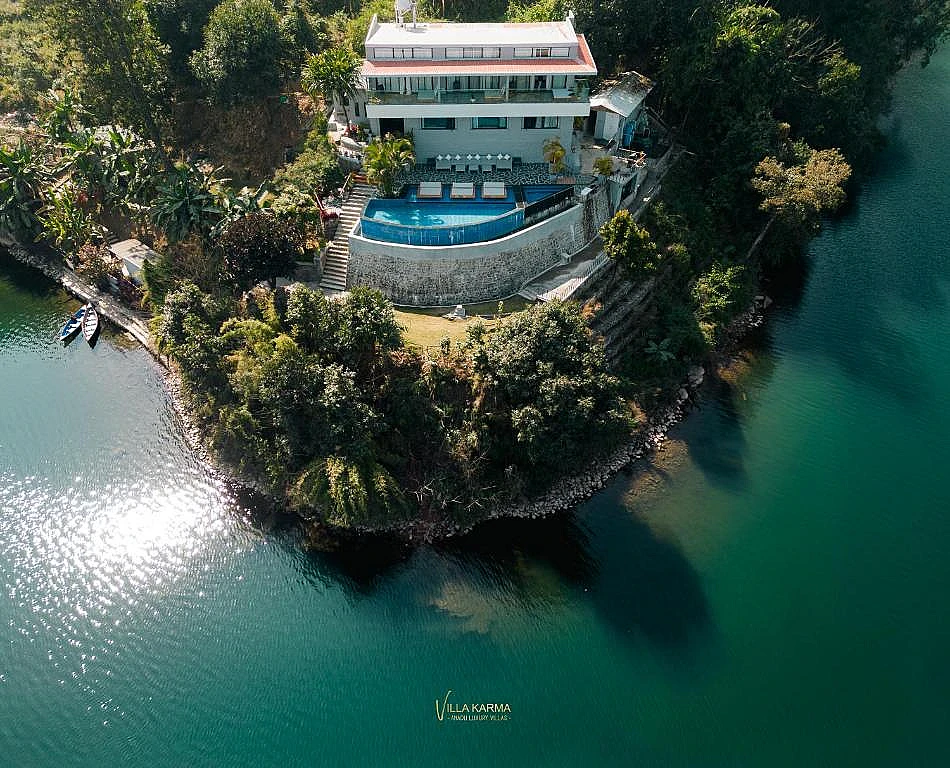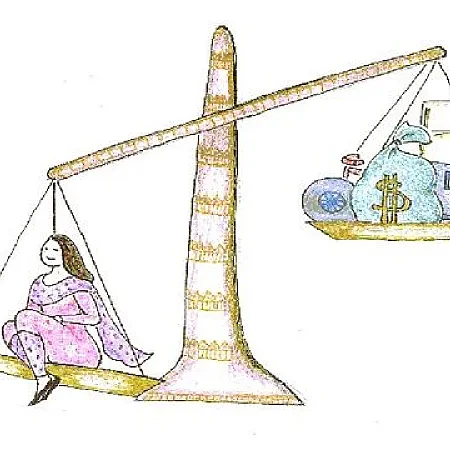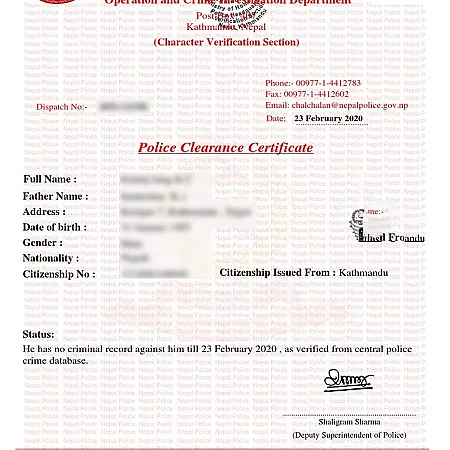Introduction
Nepal's hospitality industry stands as a cornerstone of the country's economy, contributing significantly to GDP and employment. With tourist arrivals increasing by 13% in the past year, reaching 1,147,548 visitors by mid-January 2025, the legal framework governing hotels has become increasingly important for industry stakeholders.
The complex web of hotel law in Nepal encompasses multiple regulatory authorities, licensing requirements, operational standards, and compliance obligations. Understanding these legal requirements is essential for hotel owners, operators, investors, and legal professionals working in the hospitality sector.
This comprehensive guide examines the legal landscape governing hotels in Nepal, from establishment and licensing to operational compliance and regulatory obligations.
Legal Framework and Governing Legislation
Tourism Act, 2035 (1978)
The Tourism Act of 2035 BS (1978) in Nepal outlines the legal framework and provisions governing the tourism industry's development, management, and promotion within the country. This foundational legislation provides rules for the tourist industry in Nepal and provides for the administration, licensing and control of tourism facilities and activities.
Tourism Act 1978 governs the establishment, licensing, operation and requirements for hotels, resorts and related tourism-based industries. The Act establishes comprehensive regulatory control over hospitality businesses, setting minimum standards and operational requirements.
Hotel, Lodge, Restaurant, Bar and Tourist Guide Rules, 2038 (1981)
These implementing rules provide detailed procedural requirements for hotel registration, operational standards, and compliance obligations. The rules specify the application process, required documentation, and regulatory procedures for different categories of hospitality businesses.
Foreign Investment and Development Act
Foreign investment in the hotel industry is regulated under the Foreign Investment and Development Act, with the Department of Industry regulating the approval of foreign investment of less than NPR 6 billion in Nepal.
Regulatory Authorities and Their Roles
Department of Tourism
The Department of Tourism serves as the primary regulatory authority for hotel licensing and compliance. The department administers the Tourism Act and its implementing rules, processing applications for hotel licenses and ensuring compliance with operational standards.
Nepal Tourism Board
The Nepal Tourism Board, established under the Nepal Tourism Board Act, 2053 (1997), plays a promotional and regulatory role in tourism development, including hotel industry standards and marketing support.
Department of Industry
For business registration and foreign investment approvals, the Department of Industry maintains jurisdiction over hotel establishments, particularly for corporate structure and investment compliance.
Local Government Bodies
Municipal and rural municipalities have increasing authority over building permits, local business licenses, and zoning compliance for hotel establishments.
Hotel Classification and Standards
Standard Classifications
Nepal's hotel classification system includes several categories:
Five-Star Hotels:
- Luxury accommodations with comprehensive facilities
- International standard amenities and services
- Extensive dining, recreation, and conference facilities
Four-Star Hotels:
- High-quality accommodations with substantial amenities
- Professional service standards
- Multiple dining and recreational options
Three-Star Hotels:
- Comfortable accommodations with essential amenities
- Restaurant and basic recreational facilities
- Professional housekeeping and front desk services
General Tourist Standard Hotels: A General Tourist Standard Hotel must have, at least the following facilities: (a) At least ten bedrooms and natural light and air ventilation in each room. (b) Attached bathroom and toilet in twenty five percent room and for other rooms there shall be other necessary bathrooms and toilets.
Minimum Infrastructure Requirements
Hotels must meet specific infrastructure standards including:
- Minimum room requirements based on classification
- Adequate bathroom and toilet facilities
- Natural lighting and ventilation systems
- Safety and security installations
- Kitchen and dining facilities where applicable
Licensing and Registration Process
Business Registration
Before applying for a hotel license, businesses must complete corporate registration with the Department of Industry. This involves:
Corporate Structure Requirements:
- Company registration under the Companies Act
- Memorandum and Articles of Association
- Shareholder and director documentation
- Share capital requirements
Required Documentation: Key among these are valid business registration, an environmental impact assessment report if required, and compliance with local building codes and zoning laws.
Hotel License Application
Submit an application to the Department in the format mentioned in Schedule-1 including the application fee of Ten Rupees. The application process involves:
Application Requirements:
- Completed application form from the Department of Tourism
- Business registration certificate
- Building ownership or lease documents
- Environmental impact assessment (if required)
- Compliance certificates from relevant authorities
Processing Timeline:
- Initial review and documentation verification
- Site inspection by department officials
- Compliance assessment and approval
- License issuance upon meeting all requirements
Renewal and Compliance
Hotel licenses require periodic renewal with continued compliance monitoring. Operators must maintain standards and submit regular reports to regulatory authorities.
Operational Compliance Requirements
Health and Safety Standards
Ensure compliance with health and safety standards for guests and employees. Hotels must implement comprehensive safety protocols including:
Fire Safety Requirements:
- Fire detection and suppression systems
- Emergency evacuation procedures
- Regular safety drills and training
- Compliance with building safety codes
Food Safety and Hygiene:
- Kitchen sanitation standards
- Food storage and handling procedures
- Staff health and hygiene training
- Regular health inspections
Guest Safety Measures:
- Security systems and protocols
- Room safety features
- Emergency response procedures
- Insurance coverage requirements
Environmental Compliance
The hotel should also abide by the set standards over hospitality services regarding sanitation, security, and provision of complementary services while maintaining environmental standards.
Environmental Impact Assessment:
- Required for hotels above certain capacity thresholds
- Waste management and disposal systems
- Water conservation and treatment
- Energy efficiency measures
Sustainability Requirements:
- Eco-friendly practices implementation
- Local sourcing preferences
- Community engagement initiatives
- Environmental monitoring and reporting
Labor Law Compliance
Employment Regulations
Comply with labor laws regarding employment, wages, and working conditions. Hotel operators must adhere to comprehensive labor regulations including:
Employment Standards:
- Minimum wage compliance
- Working hours and overtime regulations
- Leave entitlements and benefits
- Non-discrimination and equal opportunity
Worker Safety and Rights:
- Occupational health and safety standards
- Workers' compensation insurance
- Training and skill development
- Grievance procedures and dispute resolution
Social Security and Benefits
Hotels must provide statutory benefits including:
- Social Security Fund contributions
- Provident Fund contributions
- Health insurance coverage
- Gratuity and termination benefits
Taxation and Financial Obligations
Tax Registration and Compliance
Register with the Inland Revenue Department and comply with tax laws. Hotel operators must manage multiple tax obligations:
Income Tax:
- Corporate income tax on profits
- Withholding tax on payments
- Advance tax payments
- Annual tax return filing
Value Added Tax (VAT):
- VAT registration for eligible businesses
- Monthly VAT return filing
- Input tax credit management
- Compliance with VAT regulations
Tourism Service Tax:
- Special tourism sector taxation
- Service charge regulations
- Tourist receipts and documentation
- Compliance with tourism-specific tax provisions
Financial Record Keeping
Hotels must maintain comprehensive financial records including:
- Daily sales and revenue records
- Guest registration and billing
- Expense documentation
- Employee payroll records
- Tax compliance documentation
Foreign Investment Regulations
Investment Approval Process
Foreign investors in the hotel industry must navigate specific regulatory requirements:
Investment Thresholds:
- Automatic approval for investments under certain limits
- Government approval for larger investments
- Sector-specific investment conditions
- Repatriation and profit transfer regulations
Documentation Requirements:
- Foreign investment approval certificate
- Technology transfer agreements (if applicable)
- Joint venture agreements
- Banking and foreign exchange compliance
Operational Restrictions
Foreign-invested hotels face certain operational limitations:
- Local employment requirements
- Technology transfer obligations
- Export and local market obligations
- Reporting and compliance requirements
Quality Standards and Service Regulations
Service Standards
Hotels must maintain service quality standards appropriate to their classification:
Guest Service Requirements:
- Professional staff training
- Service quality monitoring
- Guest feedback systems
- Complaint resolution procedures
Facility Maintenance:
- Regular maintenance schedules
- Quality control procedures
- Infrastructure upgrades
- Equipment replacement protocols
Industry Standards and Certification
Hotels may pursue additional certifications:
- International quality standards
- Sustainability certifications
- Safety and security certifications
- Professional association memberships
Legal Challenges and Common Issues
Regulatory Compliance Challenges
Hotel operators frequently encounter:
Licensing Delays:
- Complex approval processes
- Multiple regulatory authorities
- Documentation requirements
- Coordination challenges
Compliance Monitoring:
- Regular inspections and audits
- Changing regulatory requirements
- Record keeping obligations
- Penalty and enforcement actions
Commercial Law Issues
Contract Management:
- Guest accommodation agreements
- Supplier and vendor contracts
- Employment contracts
- Insurance and liability issues
Dispute Resolution:
- Guest complaints and claims
- Commercial disputes
- Labor disputes
- Regulatory enforcement actions
Industry Development and Support
Government Initiatives
The government has over time introduced multiple entry visas, online visa application system, regulations to standardise trekking operations, promoted homestays in rural areas and boutique hotels, invested in expanding and upgrading airport infrastructure for improved air connectivity, focused on infrastructure development, promoted eco-friendly tourism practices to minimise the environmental impact, invested in conservation efforts and through the Nepal Tourism Board actively participated in international tourism fairs and promotional campaign.
Industry Organizations
Hotel Association Nepal (HAN) is the leading representative organization in the hospitality industry, representing more than 300 hotels, resorts and guesthouses of Nepal. HAN is the official voice of Nepal's hoteliers that safeguards their lawful interests promoting unity and co-operation among its members.
Future Trends and Regulatory Development
Emerging Legal Issues
The hotel industry faces evolving legal challenges:
Digital Transformation:
- Online booking platform regulations
- Digital payment compliance
- Data protection and privacy laws
- Cybersecurity requirements
Sustainability Regulations:
- Environmental compliance requirements
- Green building standards
- Carbon footprint regulations
- Sustainable tourism practices
Regulatory Modernization
Future regulatory developments may include:
- Streamlined licensing procedures
- Digital compliance systems
- International standard alignment
- Innovation-friendly regulations
Best Practices for Legal Compliance
Operational Excellence
Compliance Management Systems:
- Regular legal audits and reviews
- Staff training and awareness programs
- Documentation and record keeping
- Proactive regulatory engagement
Risk Management:
- Insurance coverage optimization
- Emergency preparedness planning
- Crisis management protocols
- Legal counsel engagement
Strategic Planning
Business Development:
- Market analysis and positioning
- Investment planning and financing
- Partnership and collaboration strategies
- International expansion considerations
Conclusion
Hotel law in Nepal presents a complex regulatory landscape requiring careful navigation and comprehensive compliance management. The Tourism Act, 2035 (1978) and its implementing rules provide the foundational framework, while multiple regulatory authorities oversee different aspects of hotel operations.
Success in Nepal's hospitality industry depends on understanding and complying with licensing requirements, operational standards, labor laws, taxation obligations, and foreign investment regulations. The growing tourism sector, supported by government initiatives and industry organizations, offers significant opportunities for compliant and well-managed hotel operations.
Hotel operators must invest in robust compliance systems, maintain high service standards, and stay informed about regulatory developments. The intersection of traditional hospitality law with emerging issues like digital transformation and sustainability creates both challenges and opportunities for industry participants.
As Nepal's tourism industry continues to grow, the legal framework will likely evolve to support development while maintaining quality standards and consumer protection. Proactive compliance management and strategic legal planning will be essential for long-term success in this dynamic sector.
Disclaimer: This article provides general information about hotel law in Nepal and should not be construed as legal advice. Hotel operators should consult with qualified legal professionals for specific guidance on their particular circumstances. The regulatory landscape is subject to change, and current information should be verified with relevant authorities.





-thumb.webp)
-thumb.webp)


